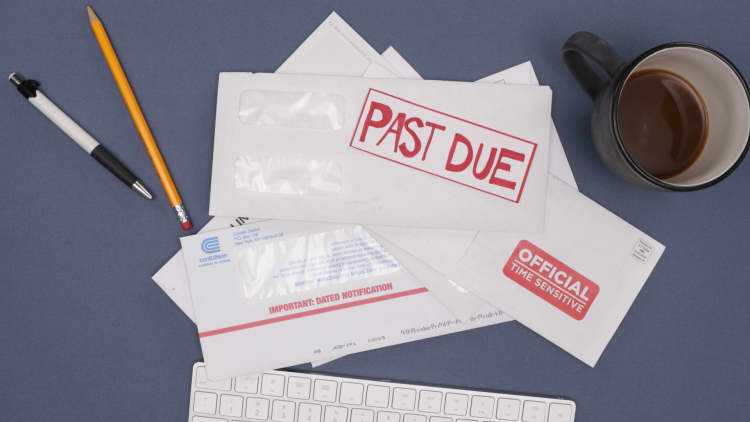Money mistakes, especially in your 20s, are inevitable. But the sooner you figure out how to take care of your finances in some basic ways, the better off you'll be.
If you want to master your money, start by trading in these 11 costly habits for some wealth-building ones.
1. Waiting until you 'have more money' to invest
Time is on your side when it comes to investing, thanks to the power of compound interest. And contrary to popular belief, you don't need to be a personal finance expert or even earn a massive paycheck to get started.
Enrolling in your employer's 401(k) plan, a Roth IRA, or traditional IRA — tax-advantaged retirement savings accounts that allow you to build wealth over time — is one of the simplest ways to invest.
There are also apps that aim to make investing simple and accessible, such as Acorns, which lets you invest your "spare change," and you can look into automated investing services known as robo-advisors.
The key takeaway: Don't wait. Even if you can't invest a ton of money, establish the habit of setting aside at least a little bit each month. Whenever you get a pay bump or bonus, reevaluate how much money you can realistically set aside.

2. Spending all of your paycheck
If you're spending as much as, or more than, you're earning, you're living paycheck to paycheck, which can easily spiral into credit card debt. That lifestyle makes it nearly impossible to build up significant savings.
The solution: Live below your means, not at it or beyond.
3. Going without a savings goal
Money won't just appear — if you want to save more, you have to have a clear goal and then set a specific plan in order to achieve it.
Start by determining exactly what major purchases you hope will be in your future, like a home, car or education for your kids. Next, determine how much you need to save for them and for how long.
Finally, set up a recurring automatic transfer from your bank account to your savings account to ensure you'll stay consistent with your savings.

4. Making late payments
In addition to costing you money in fees, missing payments can lower your credit score, which affects your ability to borrow money for bigger purchases, like a home or car, in the near future.
Never miss a bill again by setting up automatic payments online for fixed costs such as cable, internet and insurance. For expenses that can't be paid online, such as rent, set up calendar reminders and pay them at the same time each month so it becomes routine.
5. Paying the minimum on your credit card balance
Most credit cards only require you to pay 1% to 3% of your balance each month. Paying the minimum can be a tempting option, especially if your budget is tight, but it can cost you a fortune in the long run because you'll have to pay interest on the outstanding balance due.
Get in the habit of making payments in full. The easiest way to do that? Arrange to transfer the full amount of money you owe from your checking account to your credit card company every month.
If you find yourself overcharging consistently and struggling to pay more than the minimum, try ditching your plastic for a while and going on a "cash diet."

6. Having no idea where your money is going
Whether it's calling an Uber, stopping by the bodega around the corner every morning, or picking up a soda while waiting in the checkout line, it's all too easy to spend mindlessly.
Try tracking your expenses to get a better idea of where you spend your money and where you can cut back. Don't stop there. Do something with that extra cash, such as putting it in a retirement account or other savings account so it can grow over time.
7. Dipping into savings
Once you set up a retirement savings account, keep your hands off of it.
Besides facing fees — most traditional IRA withdrawals made before age 59 1/2 incur taxes and a penalty — you're putting your financial future at risk by preventing your retirement savings from growing over time.
The same rule applies to your emergency fund: Don't touch it unless you're facing a disaster that threatens your survival.
To create a mental and logistical barrier between you and this money, move it into a separate account, such as a high-interest savings account or a money-market account, which both offer higher interest rates than a traditional savings account.

8. Ignoring insurance
When you're young, it's easy to think you're invincible and forego insurance to save a bit of money each year. But even one accident can wipe out your savings.
Insurance policies are largely personal. To get the best coverage for your specific situation, educate yourself by shopping around and getting multiple quotes, reading your policy closely before signing on and asking questions when you don't understand.
Read more about choosing the right insurance plan for you.
9. Not prioritizing high-interest debt
All debt is not created equal. An effective strategy is to rank your obligations in order of interest rate, from highest to lowest. Then, prioritize the debt with the highest interest rate, while still paying the minimum on all of them, in order to pay less over the long run.
There is an alternate option, too: Rank your debt in order of size and start with the smallest. It's a strategy that personal finance expert Dave Ramsey calls the "snowball method." The idea is that each time you pay off one form of debt, you build momentum, which helps you tackle the next biggest, and so on.

10. Trying to show up your friends
Living up to your friends' or coworkers' standards is tempting — and if you're guilty of it, you're not alone. A survey by the American Institute of CPAs finds that 78 percent of 25-to-34-year-olds use their friends' financial habits to determine their own.
That being said, choosing where to eat, what to wear, and what gadgets to buy based on what your friends do can wreck your budget. Just because your friend seems able to afford the latest Apple product or an all-inclusive trip to the Caribbean doesn't necessarily mean you can.
11. Turning a blind eye
As much as you may want to ignore financial red flags, you're better off dealing with any issues right away.
Check your bank account and credit score, no matter how low you fear the number may be. Don't leave your debt for tomorrow. And take advantage of work perks and benefits, which could save you thousands of dollars a year.
Remember, you're still young. You don't need to have all this perfect yet. But ridding yourself of bad habits now will pay dividends for the rest of your life.
Don't miss: The 7 smartest money moves to make at your first full-time job



